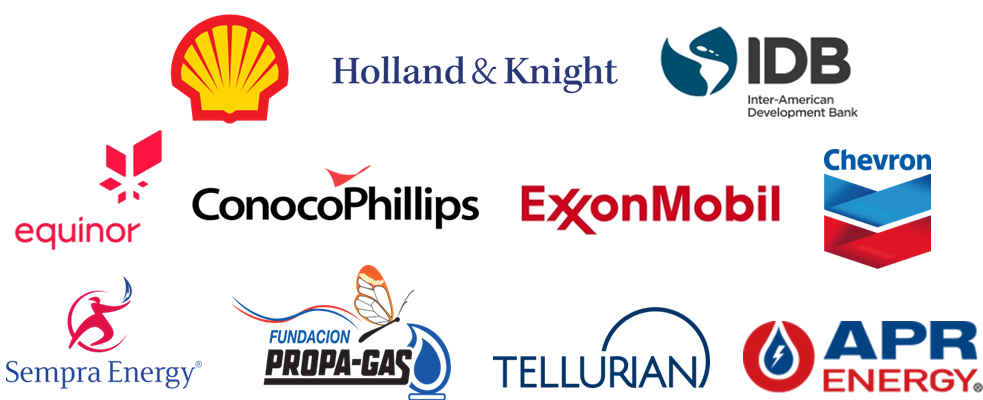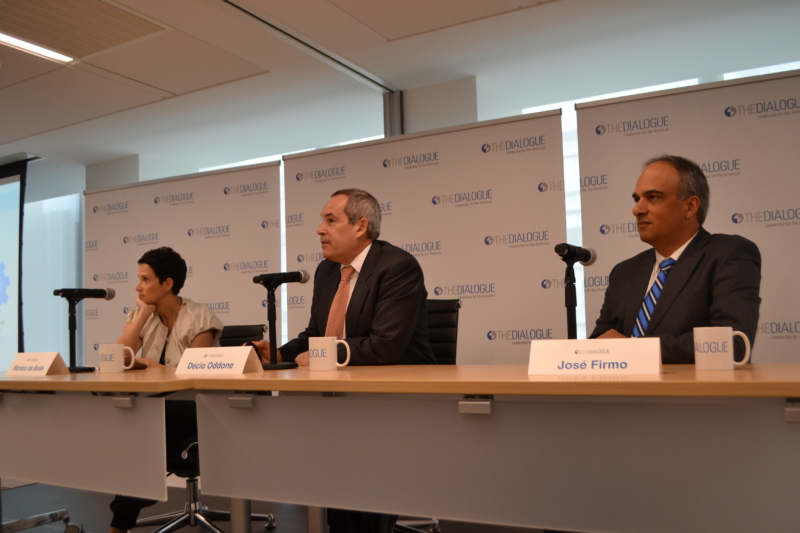Rising Brazil: The Choices Of A New Global Power
What should we expect from a newly powerful Brazil? Does the country have the capacity and leadership to be a central actor in addressing critical global and regional problems?
The role of Petrobras in the Lava Jato corruption scandal and 2014’s steep drop in oil prices have spelled a turbulent recent period for Brazil’s oil and gas sector. After several years without offering any new bid rounds, the Brazilian government under President Michel Temer has revamped energy policy and opened production and exploration up to competition. The Brazilian oil & gas industry is going through its “largest transformation ever,” said Décio Oddone, Director-General for the Brazilian National Petroleum, Natural Gas and Biofuels Agency (ANP) at an event organized by the Inter-American Dialogue on June 28th.
Since 2016 Brazil has taken major steps away from Petrobras’s 60-year monopoly and towards a diverse and competitive oil sector, notably via the authorization of other operators to compete in developing Brazil’s enormous pre-salt reserves, which account for 54% of production and virtually all new production in the past five years. As a result of the five most recent bid rounds (which include three for pre-salt acreage), by 2027 Brazil expects up to US$ 80 billion of new investments, US$ 334 billion of tax revenues, 17 new platforms, and a peak production increase of 2 million barrels per day, explained Oddone. When combining this with projects in progress and the potential unlocked by the recent loosening of local content requirements, the government places total production at 5.5 million b/d by 2027.
“Today Brazil is the most competitive in all of deepwater and ultra-deepwater.“ - José Firmo, Brazilian Petroleum Institute #DialogueEnergy pic.twitter.com/Vda0DhFR6R
— The Inter-American Dialogue (@The_Dialogue) June 28, 2018
José Firmo, President of the Brazilian Petroleum, Gas and Biofuels Institute (IBP) emphasized that the U.S. shale boom increased the pressure on Brazil to enhance efficiency in its deepwater operations. For example, a single well in the Libra project is now producing 51,000 bpd. It will be important for Brazil to attract major oil companies with advanced technology and ample capital to continue developing the ultra-deepwater pre-salt fields, Firmo said.
Much work remains to be done in opening up the refining sector, where Petrobras’s de facto monopoly (it is responsible for 99% of refining) has produced an import dependency despite Brazil’s massive crude oil output. Firmo cited Petrobras’s divestments in refining, as well as transport, as important steps in diversifying the entire supply chain. Oddone noted that it is likely that LNG imports will be replaced by domestic natural gas production in the near future.
Finally, neither speaker expected radical changes to take place as a result of October’s election. They noted that Brazil has a long history of honoring contracts, and that the long time horizon of the industry means that the next 5-7 years of activity are already filled, with a high volume of major projects coming online in the next 3-5 years. In terms of downstream, Oddone also stressed that the government has no intention of intervening in Petrobras’ fuel pricing policies, despite the truckers’ strike over diesel prices that devastated the Brazilian economy in May. On the other hand, it is unsustainable for the government to indefinitely continue subsidizing fuel to below international prices, especially given the precarious position of Brazil’s budget. Inevitably, a long-term solution will need to be identified.
[embed]https://www.youtube.com/watch?v=vhJz0bRfDYQ[/embed]


What should we expect from a newly powerful Brazil? Does the country have the capacity and leadership to be a central actor in addressing critical global and regional problems?
President Lula da Silva triumphantly announced that he and his Turkish counterpart had persuaded Iran to shift a major part of its uranium enrichment program overseas—an objective that had previously eluded the US and other world powers. Washington, however, was not applauding.
As global temperatures continue to rise with the global community stalled on any way to stop them, countries must prepare to adapt to increasingly volatile environmental conditions.
 Irene Estefanía González / Inter-American Dialogue
Irene Estefanía González / Inter-American Dialogue